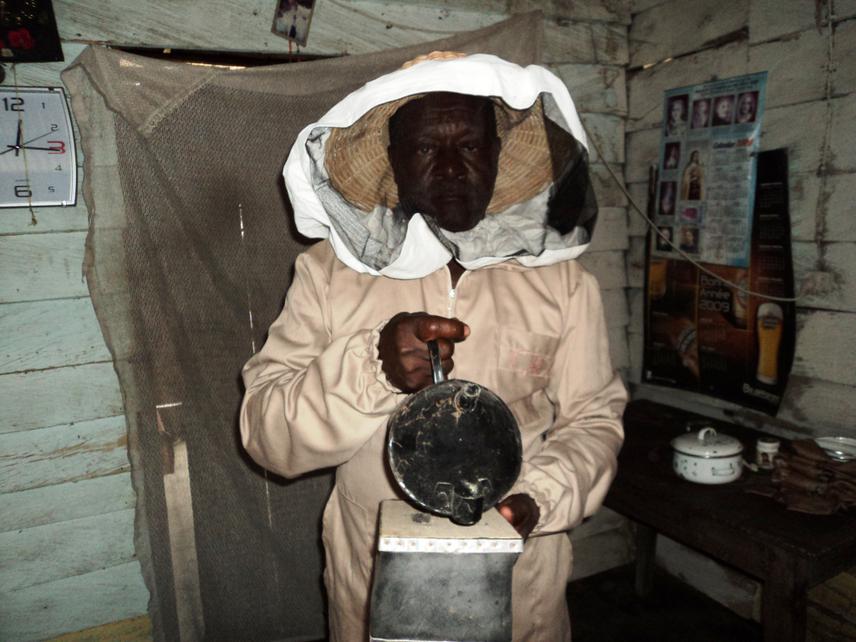Martin Etone
Other projects
This project aims at raising local awareness on the impact of unsustainable hunting and bushmeat trade on both people and wildlife resources, especially endangered species already faced with extinction.

The Central Africa region inhabits over 30million people. Most of these people rely on bushmeat as an economically important food and income item for their rural and urban families. Statistics show that 1.1 metric tons of bushmeat is eaten in this region annually. The reason for this alarming figure is that as agriculture becomes increasingly unprofitable due to low cash crop prizes and the devaluation of the local currency, many rural people in the Congo Basin have resorted to unsustainable hunting and bushmeat trade. These activities today, expose rare and endangered species such as the elephant, chimpanzees, drills and buffalo to extinction. Illegal uncontrolled hunting is therefore causing a major threat to the future of wildlife in this region.
In the Bakossi forest landscape of Cameroon, endangered species of wildlife, particularly primates such as chimpanzee (Pan troglodytes), Drills(Mandrillus leucophaeus), Preuss’s monkey (Cercopithecus preussi), putty nose guenon(C. nictitans) are under great pressure and threatened with extinction due to illegal, non-selective hunting methods and practices and the rising bushmeat trade in the region.
With committed financial support from the Rufford Small Grants Foundation, CAD together with local populations has been redressing these critical issues affecting wildlife resources and people in the Bakossi/Muanenguba forest regions of Cameroon since early 2008. This participatory project aims at raising local awareness about the plight of endangered species, particularly the primates whose numbers are greatly reduced due to unsustainable hunting practices. In addition, it addresses issues of information on the Cameroon wildlife law, empowerment of communities to check illegal killing wildlife as well as improving grass root participation in the reinforcement and implementation of wildlife policies on the ground.
Furthermore, the project livelihood by introducing and promoting viable alternative micro-enterprises such as snail farming and beekeeping, thus, fostering biodiversity conservation through non-consumptive use to alleviate poverty among forest dwellers. These activities are intended to meet with the food and income requirements of local populations and reduce the overall time spent on hunting and bushmeat trade. Our long-term goal therefore is to:
Endear the concept of conservation practice to indigenous and peripheral forest dwelling populations;
Soothe their eventual loss of land and access to other natural resources when many more protected areas are created out of the zone to meet the national target under protection;
Improve local incomes without endangering the lives of wildlife in the Bakossi forest landscape region.